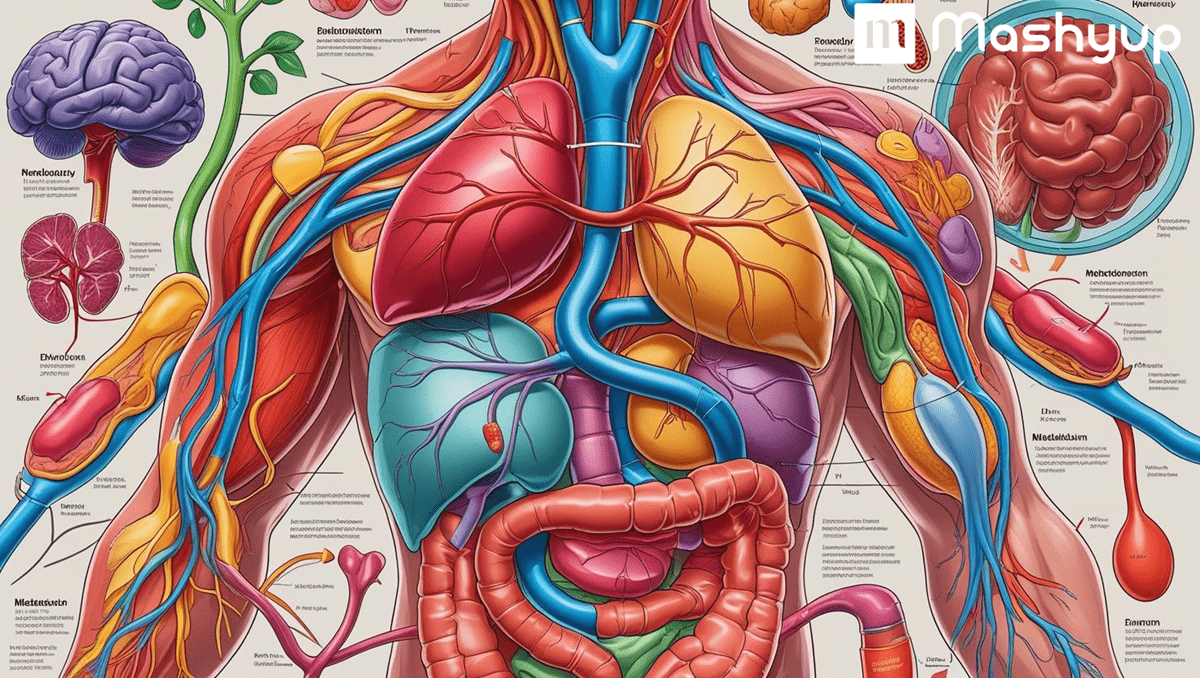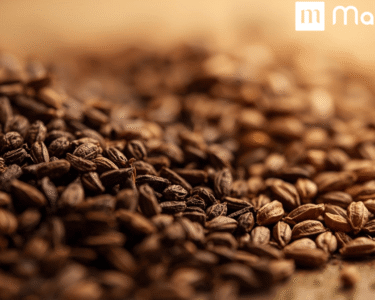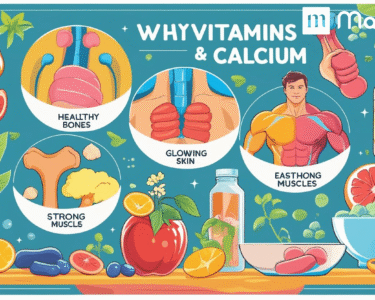We frequently hear the phrase “metabolism” in discussions about fitness, weight loss, and general health, but what does it actually mean? The collection of chemical reactions that take place inside a living thing to sustain life is known as metabolism. It entails turning the food and liquids we eat and drink into energy, which our body uses for everything from circulation and breathing to muscle contraction and cell repair.
Understanding the Basics of Metabolism
To understand Metabolism in detail, let’s start by breaking it down into two main processes: Catabolism and anabolism.
- Catabolism : It’s the process where the food and organic matter is broken down into energy.
- Anabolism : It’s the process where the energy is used to build and repair the tissues and cells.
Then comes Basal Metabolic Rate (BMR) into the picture. BMR is the amount of energy that is required by your body at rest to perform these two basic functions. This BMR is highly dependent upon factors like age, gender, hormones, muscle mass, and genetics.
Factors that Affect your Metabolism
- Hormonal and Medical Conditions
- Body size and composition
- Physical activity level
- Age
- Genetics
- Gender
- Muscle Mass
- Diet and Meal Patterns
- Hydration
- Sleep quality
Understand the Types of Metabolism
Please note that metabolism is not the same for everyone; it has different types, and not everyone shares the same type. It is these types only that influence how you process food, according to which you gain or lose weight. Let’s learn about those main types of metabolism:
Slow Metabolism:
In this type of metabolism, you burn calories at a very slow rate. This slow calorie burning makes one gain weight very easily. The story does not end here as it makes losing weight too very challenging for them. This sluggish metabolism often happens due to factors like hormonal imbalance, aging, and low muscle mass.
Fast Metabolism :
On the other hand, fast metabolism burns calories very fast even when the body is at rest. People with fast metabolism feel energetic and have a good appetite. This high metabolism does not let you gain weight or even muscle mass. Factors affecting fast metabolism includes genetics, higher muscle mass and or an overactive thyroid.
Balanced or Normal Metabolism
A large fraction of people lie between fast and slow metabolism, which is balanced metabolism. This healthy metabolism converts food to energy at an average rate while sustaining weight and energy level in the body.
Ways to Improve Metabolism in the Body
Although the metabolism rate is in the genes and there are still effective ways to boost it naturally. Let us look at the practical tips on how to improve metabolism and enhance the body tendency to burn more calories.
Stay Hydrated
Yes ! The most underrated but effective method is drinking enough water. Studies and researches have proved that when you drink water your body works more to warm it up, resulting into more calorie burn.
But make sure you stay hydrated by drinking water and healthy detox water only, and not any kind of sugary drinks.
Increase your Protein Intake
Consuming protein rich foods can actually boost your metabolism through a process names as the thermic effect of food. TEF uses your energy to digest, absorb and process the nutrients in the body. Protein is a must for the body as it increases the TEF, which carbs and fats can’t do.
TIP: Want some protein rich food options ? Opt for Lean meats, eggs, legumes, dairy, and nuts in your daily diet.
Practice Strength Training
Move and build your muscles strong if you want to increase your metabolic rate. It has been confirmed by certain studies that muscle tissue burns more calories than fat tissues, even when you are at rest. To get up and enroll yourself in an incorporate resistance training programs like weight lifting, bodyweight exercises or resistance bands in your workout regime.
Drink Herbal Tea or Green Tea
Green Tea increases your metabolism by about 4 to 5 %. These teas increase your fat burning process by converting stored fat into free fatty acids. Therefore, avoid excessive caffeine intake as much as possible and sip your herbal tea’s at least two times a day.
Engage in Eating Frequent Meals, but in Small Portions
Some studies suggest that eating small portions of food after a regular interval keeps your metabolism active, hence making your metabolism faster. Eating after every 3 to 4 hours may work for most people. But make sure you listen to your body and make sure you eat only when your body needs it.
Tip: Try to follow a healthy routine, stay away from empty junk snacks, and try to focus on balanced nutrient dense meals.
Always Keep Moving
Staying active does not mean you need to hit the gym always. It simply required you to be busy in Non-exercise activity thermogenesis (NEAT) i.e walking, taking stairs, or even standing while working, can add up and increase your calorie burn.
Tip: Avoid sitting for long periods and try taking short walks, stretching, and more.
Get Enough Sleep
The most underrated but essential point is getting enough sleep. Poor sleep quality can slow down your metabolism and lead to weight gain. Not only this, but bad quality of sleep may even lead to hormone imbalance that regulates the hormones in the body. So, aim for a 7-9 hours of good sleep each night to increase your metabolism.
Take Charge of Your Own Metabolism
If you understand what is metabolism and also learn about the types of metabolism, then it can definitely empower you with healthier choices. You can maintain a healthy weight, increase energy levels, and support your body’s natural functions by putting these helpful metabolism improvement recommendations into practice.
Keep in mind that maintaining healthy habits like regular exercise, a balanced diet, being hydrated, and getting enough sleep is essential to maintaining an effective metabolism.






